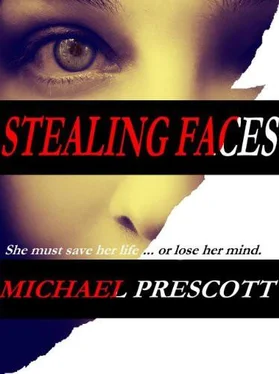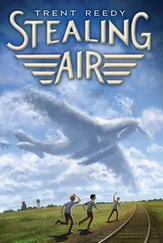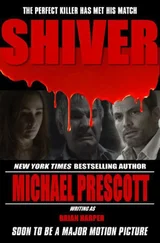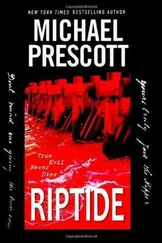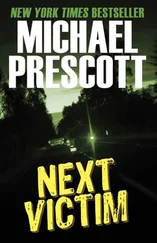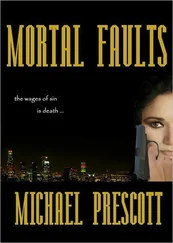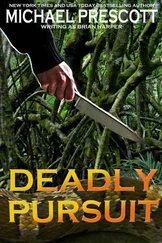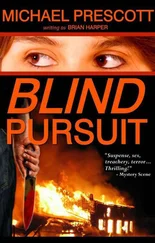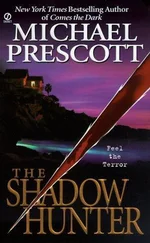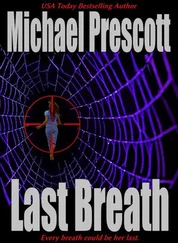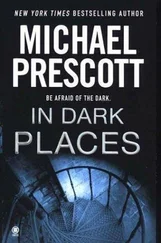Michael Prescott - Stealing Faces
Здесь есть возможность читать онлайн «Michael Prescott - Stealing Faces» весь текст электронной книги совершенно бесплатно (целиком полную версию без сокращений). В некоторых случаях можно слушать аудио, скачать через торрент в формате fb2 и присутствует краткое содержание. Жанр: Триллер, на английском языке. Описание произведения, (предисловие) а так же отзывы посетителей доступны на портале библиотеки ЛибКат.
- Название:Stealing Faces
- Автор:
- Жанр:
- Год:неизвестен
- ISBN:нет данных
- Рейтинг книги:4 / 5. Голосов: 1
-
Избранное:Добавить в избранное
- Отзывы:
-
Ваша оценка:
- 80
- 1
- 2
- 3
- 4
- 5
Stealing Faces: краткое содержание, описание и аннотация
Предлагаем к чтению аннотацию, описание, краткое содержание или предисловие (зависит от того, что написал сам автор книги «Stealing Faces»). Если вы не нашли необходимую информацию о книге — напишите в комментариях, мы постараемся отыскать её.
Stealing Faces — читать онлайн бесплатно полную книгу (весь текст) целиком
Ниже представлен текст книги, разбитый по страницам. Система сохранения места последней прочитанной страницы, позволяет с удобством читать онлайн бесплатно книгу «Stealing Faces», без необходимости каждый раз заново искать на чём Вы остановились. Поставьте закладку, и сможете в любой момент перейти на страницу, на которой закончили чтение.
Интервал:
Закладка:
Nocturnal animals, all of them. By day they hid in their burrows — Kaylie in her cheap motel, Cray in his office, the police in squad rooms and courthouses. They did safe, meaningless things. But at night they came alive.
At night the heart quickened. Danger, a night-blooming flower, opened its petals and released its subtle, enticing perfume. Risks were taken. Hunters stalked.
“ ‘Come, seeling night,’ ” Cray quoted in a whisper, “ ‘scarf up the tender eye of pitiful day….’ ”
Macbeth. A reference, as Cray recalled, to the Elizabethan sport of falconry; the bird’s eyelids were sewn shut — scarfed up — while it was in training. By metaphorical extension, day was the time for seeing and being seen, and night, blinding night, was when the unseen ruled.
Shakespeare must have loved the night. All poets did, and all killers too.
At the end of their meeting. Shepherd had given Cray a portable radio preset to a frequency used by the Graham County Sheriff’s Department. The radio was now clipped to Cray’s slacks, its dark shape nearly invisible against his clothes.
He glanced at it. The power LED was lit, but the radio was silent.
He hoped it would not be silent for long.
With his medical bag in hand, he crossed the kitchen swiftly, his black shoes clacking on Saltillo tile, and reached the door to the garage. Before opening it, he tossed a curt glance out a side window, into the small arbor that bordered his property.
What he saw pleased him, but he deferred a smile.
His Lexus waited for him in the garage. What he’d done to the vehicle had been painful — grooving deep scratches into the finish, slashing the upholstery and tires. Still, the task had been necessary, and most of the damage was superficial.
He surveyed the car in the light of the bare ceiling bulb. It was still a mess, of course, but at least it was drivable once again. After Shepherd’s phone call, Cray had sent for a mechanic, who had replaced all four tires, hammered out some minor damage to one of the wheel rims, and checked under the chassis and the hood.
The front seats remained a travesty, the leather hacked and torn, and the front window on the driver’s side was gone, leaving the vehicle’s interior open to the elements, but Cray didn’t mind.
Comfort was not a prime consideration. Tonight’s drive would be short. He expected to travel no farther than a mile or two.
Even so, he took a moment to find a relatively unscratched CD in the pile of discs on the floor of the passenger compartment. Puccini’s Gianni Schicchi. It would do.
He started the engine, then slid the disc into the player and let the rich strains of the opera’s overture fill up his world.
With the remote control, he opened the garage door. As it rose, he settled back in the tattered seat and prepared himself.
There was risk, naturally. Kaylie might be sufficiently frustrated — maddened, even — to try something desperate.
In their meeting Shepherd had raised this possibility. Of course, Shepherd believed Kaylie McMillan to be psychotic. He thought she had wrecked her motel room in a fit of rage, while Cray had already learned the truth of the matter from Walter Luntz, who had recounted the narrative in a low, shamed voice upon his return.
You weren’t supposed to attack her, Cray had said, holding his anger in check. I told you to find the car, that’s all.
Find the red car, Walter said glumly.
I thought you were more reliable, Cray chided softly.
Walter hung his head. I’m sorry, Dr. Cray.
We’ll speak of this later. In the meantime, you are to tell no one what happened today. Do you understand me, Walter? No one at all.
Walter had said he understood, and Cray had let him leave, his shoulders hunched, head down, a large man diminished by disgrace.
So Kaylie, of course, had not trashed her room, any more than she had vandalized the Lexus. Still, she might well have been driven to the point of blind rage, even derangement, by all that had transpired in the past twenty-four hours.
She was unstable, after all. Cray had never doubted it. Psychotic? No. But hardly well adjusted, either.
If she was armed — if she had recovered her gun from the weeds where he’d thrown it, or had obtained a substitute firearm — then she might attempt an ambush. Might take a shot at him from outside the fence, or from the roadside.
Unlikely. Not impossible. A gamble. One he was willing to take.
The garage door had risen. Cocooned in Puccini, Cray backed slowly into the driveway, where Kaylie McMillan just might be waiting with a gun.
Wheelihan got the message on his handheld radio and signaled to the deputies.
“He’s leaving. Get ready.”
The three men climbed into their patrol cars and started the engines, then waited, headlights off.
At the roadside Wheelihan knelt in the mesquite brush and tipped a night-vision scope to his eyes. He peered at the long strip of gravel.
Cray would be coming this way. Cray — and maybe someone in slow pursuit.
“Come on, Kaylie,” Wheelihan whispered, a cold crawl of sweat glazing his neck. “Don’t disappoint us now.”
The gate at the end of Cray’s driveway swung open in the red glow of his taillights. He eased the Lexus onto the road.
His heart rate was steady at sixty-eight beats per minute. His respiration was slow and deep. Puccini wavered over the speakers.
The road was empty in both directions.
Cray headed west, toward Highway 191.
A bullet might snap out of the darkness at any moment, but he felt no fear. He fiddled with the controls on the CD player, skipping a few damaged tracks before settling on the opera’s best aria, one of the peaks of Puccini’s art.
Then he settled back, listening as the soprano’s first notes trembled from the audio console in luxuriant stereo.
“O mio babbino caro…”
Cray let the rich waves of sound wash over him, a tidal flow of high emotion, of love and longing, passionate yet civilized.
There was dignity in this music, and sadness also. Puccini had composed Gianni Schicchi at the end of World War I, when the naive optimism of the Romantic era was fading to ashes. The world never again would cherish the illusion of an immortal soul, a ghost in the machine. And things would change.
At rare times, upon waking in the dawn twilight, Cray would wish he’d been born earlier in history, when no one knew that a human being was only a basket of chemical compounds, a glorified ape disguising its basic animality behind layers of personae that could be all too easily stripped away.
He might have fit into that earlier era, had he been given the chance. He might have proved himself elegant and mannered and even dashing, like the gentlemen of that vanished world.
And not knowing any better, he might even have found a way to believe in something great, something higher than reflex and instinct, hormones and encoded instructions in the genes.
The mood always passed. Heartsickness was not for him. He was a realist. He took life as it was.
At his hip, the handheld radio squawked.
Cray grabbed it. “Yes?”
The rough masculine voice sizzling on the radio belonged to Undersheriff Wheelihan. “I’ve spotted her. She’s a quarter mile behind you.”
Cray glanced at the rearview mirror. “I don’t see anything.”
“She’s got her headlights off. I’m using a night-vision scope. Maintain your speed till you’re past the checkpoint. We’ll take it from there.”
“I understand,” Cray said.
He set down the radio on the passenger seat next to his medical kit, feeling vaguely disappointed. It hardly seemed sporting of the law enforcement authorities to hunt poor Kaylie with a night-vision scope. Cray himself had never used such equipment when he chased down his prey.
Читать дальшеИнтервал:
Закладка:
Похожие книги на «Stealing Faces»
Представляем Вашему вниманию похожие книги на «Stealing Faces» списком для выбора. Мы отобрали схожую по названию и смыслу литературу в надежде предоставить читателям больше вариантов отыскать новые, интересные, ещё непрочитанные произведения.
Обсуждение, отзывы о книге «Stealing Faces» и просто собственные мнения читателей. Оставьте ваши комментарии, напишите, что Вы думаете о произведении, его смысле или главных героях. Укажите что конкретно понравилось, а что нет, и почему Вы так считаете.
